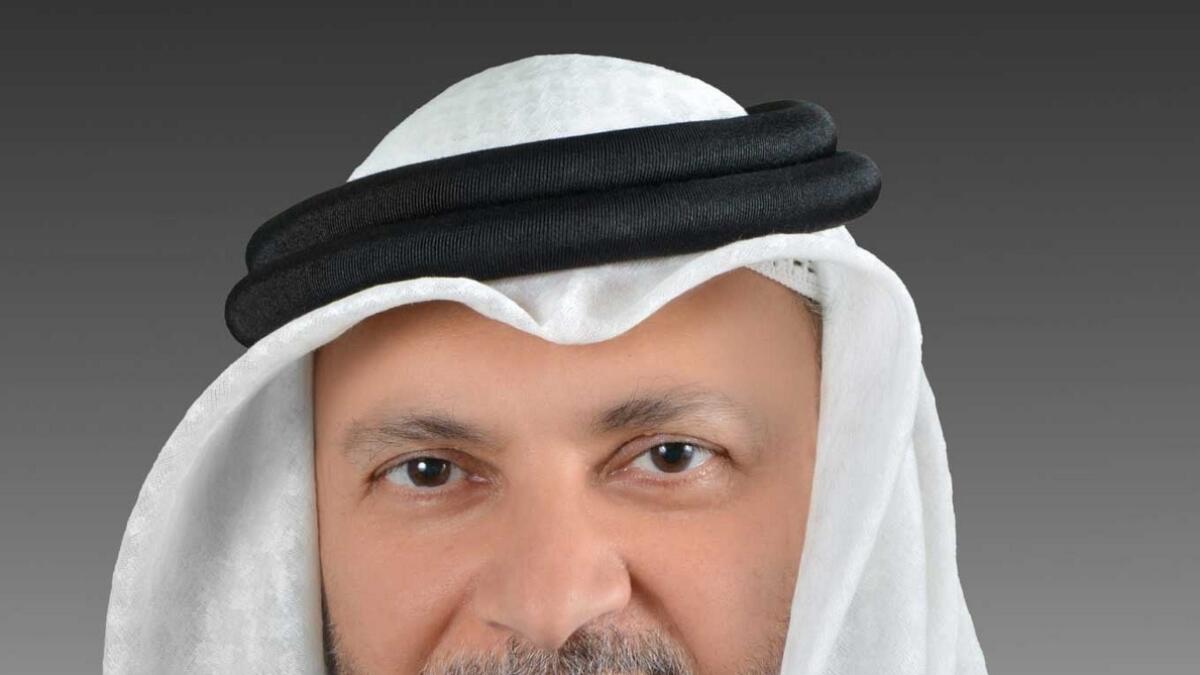UAE Minister of State for Foreign Affairs Dr Anwar Gargash.- Wam
Abu Dhabi - Houthi militias have wreaked havoc on the country, but they are a part of Yemeni society and they will have a role in its future.
Published: Sun 10 Nov 2019, 8:00 PM
Last updated: Sun 10 Nov 2019, 10:53 PM
Yemen's rebels will have a role in their country's future, UAE Minister of State for Foreign Affairs Dr Anwar Gargash said on Sunday, voicing optimism that a recent peace deal between the government and southern separatists could lead to a wider solution. He also urged Iran to come to the negotiating table with world powers and Gulf countries.
The comments were the latest conciliatory move in the long-running Yemen conflict, after the Iran-backed Houthis offered in September to halt attacks on Saudi Arabia.
Dr Gargash urged all sides to maintain momentum for a political solution. "Such an agreement must take account of the legitimate aspirations of all parts of Yemeni society. That includes the Houthis," he said at a political conference in Abu Dhabi.
"Houthi militias have wreaked havoc on the country, but they are a part of Yemeni society and they will have a role in its future."
The Houthi rebels have been fighting the internationally recognised government and its allies for more than four years in a war that has pushed the country to the brink of famine.
But Dr Gargash said he was hopeful that a power-sharing deal between the government and the secessionist Southern Transitional Council, inked in Riyadh last week, could pave the way for a wider peace deal.
"The agreement solidifies the anti-Houthi coalition and provides a more robust basis for reaching a political solution," he said. "Now we need to build on the momentum this has given us."
"Having redeployed our troops from Aden, the UAE's priorities within the Coalition will be to continue to provide humanitarian aid, counter terror threats and protect maritime security. We will also lend ongoing support to the government of Yemen and the UN in their efforts to achieve a sustainable political solution," the minister explained.
He said Iran should come to the negotiating table with world powers and Gulf countries to seek a new deal that would deescalate regional tensions and revive its economy.
Tensions in the Gulf have risen since attacks on oil tankers in a vital global shipping lane this summer, including off the UAE coast, and a major assault on energy facilities in Saudi Arabia.
Washington has blamed Iran, which has denied being behind the attacks on global energy infrastructure.
On Thursday, Iran said it had resumed uranium enrichment at its Fordow nuclear site, stepping further away from its 2015 nuclear deal with world powers after the United States pulled out of it.
"Further escalation at this point serves no one and we strongly believe that there is room for collective diplomacy to succeed," Dr Gargash said.
He warned against a "false choice" between war and the "flawed" atomic deal.
The United States has imposed fresh sanctions on Iran since pulling out of the pact as part of its "maximum pressure" campaign on Tehran.
Dr Gargash said new talks with Iran should not just deal with the nuclear issue but also address concerns over its ballistic missile programme and regional interventions through proxy groups.
These topics mean regional countries would need to be involved in the discussions, he said.
"Given how we have seen Iran use its ballistic missiles, it will be difficult for any meaningful talks not to address this. And critically, this time, the Gulf states would need to be at the negotiating table."
"I believe there could be a path to a deal with Iran that all parties might soon be ready to embark on. It will be long, and patience and courage will be required," Dr Gargash said.
It was important that the international community be on the same page, especially the United States and European Union countries, as well as regional states, he added.
Washington says it hopes the sanctions, which are aimed at halting all Iranian oil exports, will force Iran into negotiations to reach a wider deal.
But Iran's supreme leader Ayatollah Ali Khamenei has banned Iranian officials from holding such talks unless the United States returns to the nuclear deal and lifts all sanctions.












